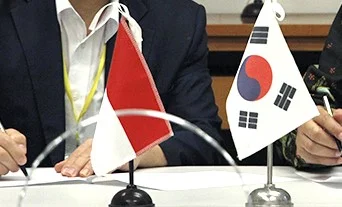The Battle for Asia’s World City
/Anyone who has visited Hong Kong probably cannot help but be deeply saddened by the recent violence that has broken out across the territory, as pro-democracy activists clash with the city’s police in protest at what they see as Beijing’s tightening grip. For decades, the city has been one of the world’s leading commercial hubs, the gateway to China and has lived up to its brand tagline of “Asia’s world city” (well, one of them, at least). The handover of Hong Kong to China in 1997, far from auguring an era of tension and concerns among corporate investors, in fact positioned the city perfectly to capitalise on its semi-autonomous region (SAR) status under the ‘one country, two systems’ principle – this despite the Asian financial crisis which gripped the broader region that same year. The crisis did indeed hurt many of the region’s economies, including Hong Kong, and yet China’s inexorable rise to global economic prominence ensured Hong Kong saw in the new century full of confidence in the economic prosperity to come.
Fast forward to 2019 and violent images and videos of riots with barricades, tear gas, molotov cocktails and subway beatings flood our screens. Alongside citizens fighting for their city’s future, corporate investors also look on with concern and consider what impact this enduring unrest may have on their operations in the city. At this point, it’s important to highlight that riots and other forms of civil unrest can happen the world over, including in some of the world’s commercial hubs: think of the London riots back in 2011, or the more recent gilets jaunes protests in Paris. Such riots clearly shook the cities, and yet investor and broader business confidence held firm. To this day, the two capitals take the top two spots in Europe for FDI which, unlike other more speculative forms of investment, tends to take a long-term view of – and commitment to – its host location. As long as a host location’s government can show it is addressing issues that directly or indirectly impact investment, companies will typically opt to stay put in anticipation that such issues will subside and circumstances will improve.
Alas in the case of Hong Kong, it is difficult to see how matters will get better before they get worse, as two seemingly irreconcilable groups fight for their vision of the city’s future. Signs of a sustainable settlement acceptable to both sides would go a long way to reassuring investors that Hong Kong can settle down and continue to prosper as the gateway to China and other Asian markets. And yet here lies another key challenge beyond the current unrest: rising competition – both on the Chinese mainland and other commercial hubs elsewhere in Asia. In the case of China, a whole swathe of cities across the country have emerged or cemented their positions as magnets for investment in recent years, from the traditional hubs of Shanghai, Beijing and Guangzhou (less than 100 miles from Hong Kong), to lesser-known but increasingly well-connected cities such as Chongqing, Chengdu and Xi’an. In other words, there are an increasing number of attractive gateways to the world’s second-largest economy. Further afield, Hong Kong’s long-standing regional rival, Singapore, which in 2018 was the fourth-largest recipient of FDI inflows (just behind Hong Kong).[1]
UNCERTAIN TIMES: WHERE NEXT FOR ASIA’S ‘WORLD CITY’, HONG KONG?
Despite the challenges and the rising competition, Hong Kong nevertheless has plenty of important attributes to its name, from its highly-regarded legal system, to world-class universities, infrastructure and quality of life. Access to talent remains a key draw and consideration for potential investors, and Hong Kong continues to be a magnet in Asia for some of the world’s best and brightest professionals in industries ranging from finance, technology and business services, to hospitality, transport and logistics.
But Hong Kong, while undoubtedly a unique destination, is not unique in possessing this winning combination of investment attributes, and while question marks remain over Hong Kong’s short-term and longer-term future, both existing and potential investors will consider their location options, and invariably, their alternatives.
[1] Data from the United Nations Conference on Trade and Development (UNCTAD).








